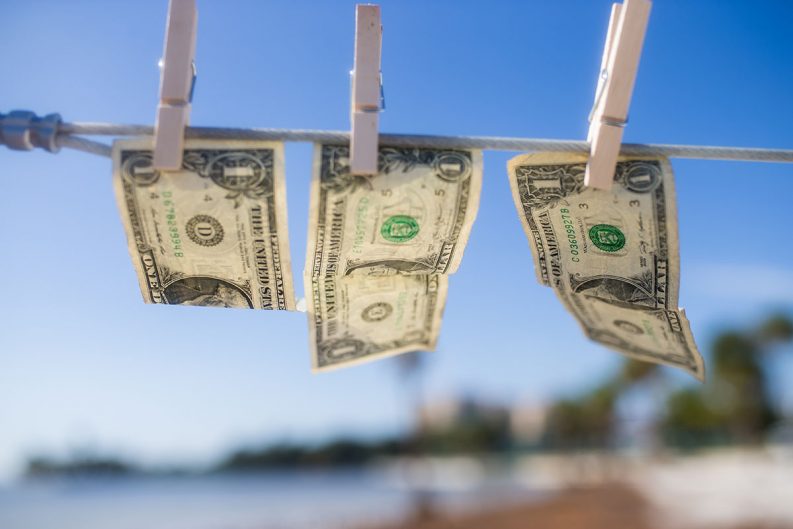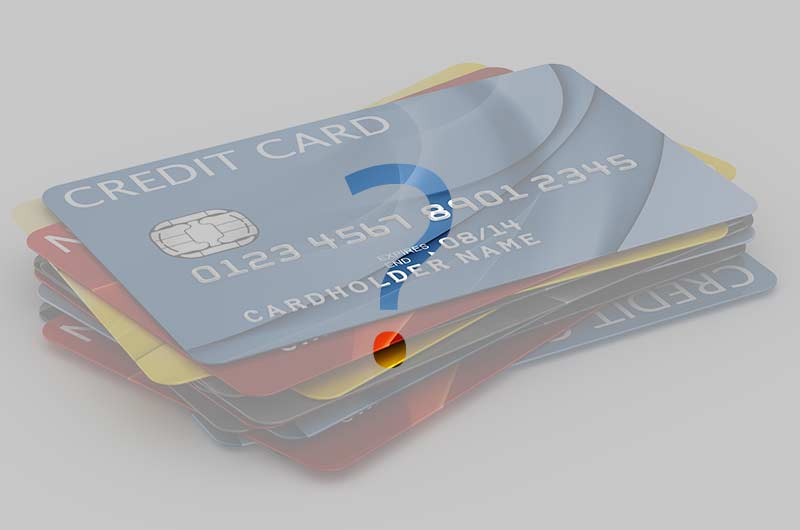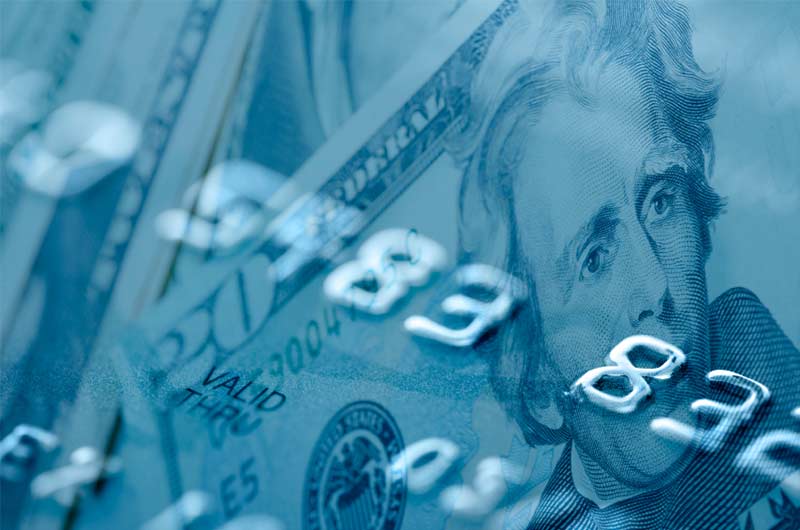Best Secured Credit Cards with No Annual Fee
Secured cards are great tools for credit building, but that service often comes at a small price. From annual fees to APRs, there are several expenses you need to be aware of before opening an account. What are some of the best secured cards with no annual fee? Why do most secured credit cards have annual fees? Let's look at how fees work on secured credit cards.

Most Secured Credit Cards Have an Annual Fee
You'll be hard-pressed to find a secured credit card with no annual fee. There are a couple options on the market, but they are hard to come by and tend to have additional fees that outweigh the $0 annual fee. This begs an important question: why do secured cards charge annual fees?
Put yourself in the mind of a card issuer. You're offering someone a chance to build credit by reporting their payments to all three credit bureaus. What can you do to provide this service and still make a little money along the way? This is where an annual fee comes in, along with other fees on the card.
The $30-$50 annual fee may be a small price to pay for a chance to boost your credit score. This gives you the opportunity to display smart credit card habits and show positive payment history month after month. You just have to decide if the credit you build is worth the cost.
Best Secured Cards with Low Annual Fees
If you want a secured credit card that can graduate to an unsecured credit card, any of these options would be a good fit for you:
OpenSky® Secured Visa® Credit Card
The The OpenSky® Secured Visa® Credit Card has a low annual fee of just $35 and an APR of 17.39%. No credit check is required to apply, and you can open an account with a security deposit of just $200. The card reports to all three credit bureaus.
PCB Secured Visa®
The PCB Secured Visa® has an annual fee of $39, and it supports security deposits between $200 and $1,000. After having an account for a year, that deposit limit increases to $5,000. The PCB secured card reports to all three credit bureaus and offers 24/7 customer support.
Applied Bank® Secured Visa® Gold Preferred® Credit Card
The Applied Bank® Secured Visa® Gold Preferred® Credit Card has a slightly higher annual fee of $48, but it makes up for that with a low fixed APR of 9.99%. There is no minimum credit score required to apply for this card, so you can qualify regardless of past credit challenges. This card also reports to all three credit bureaus.
How Annual Fees Work on Secured Credit Cards
When do secured cards charge annual fees? It is after the first year? In January? When the account is opened? On a specific day every year?
Secured card annual fees work the same as most credit card annual fees. The annual fee comes out of the available balance when the account is open. Let's say you have a $35 annual fee and you provide a security deposit of $500. Your available balance when you first use the card will be $465. If you pay that off before your first transaction, you will have all $500 available to use.
The annual fee will be charged to the account around the same time every year. If you opened your account in April, you will most likely be charged another annual fee the following April. These terms vary by card issuer, so make sure to read your card terms closely.
If you close your account before your next annual fee is due, you should not have to pay for it. A number of secured cards have a clause in their terms of agreement that says they will refund an annual fee if you close your account within 30 days of it posting to your account. If you do not notify them or do not close the account within that timeframe, the annual fee will be deducted from your refunded security deposit.
Other Secured Card Fees You Need to Be Aware of
The annual fee isn't the only charge to take into consideration. In fact, you may find that a card with a high annual fee is actually better suited to your needs because it has low fees elsewhere. Here are some expenses to keep in mind:
- APR: The APR is not necessarily a fee, but it significantly impacts your card carrying expenses. If you pay off your balance each month, you won't be charged interest on the transactions. However, if you do plan to carry a balance, the interest will add to your debt. Look at the APRs when you compare secured cards if you think you'll carry a balance from one month to the next.
- Late Fees: You should always play your credit card bills on time, even if you can only make the minimum monthly payment. Don't assume that you can be late on a payment just because you have a secured credit card. If you are late, you will most likely pay a $20-$30 fee on your next bill.
- Monthly Fees: Some credit cards charge a monthly fee in lieu of or in addition to an annual fee. For instance, you might have a $36 annual fee the first year, but then a $3 monthly fee the second year. This fee is charged once a month, rather than once per year.
- Cash Advance Fees: Cash advance fees apply to ATM withdrawals. Some cards offer free cash advances for the first year, followed by a fee per withdrawal or a percentage of the withdrawal. Cash advances are not included in the interest-free period for a credit card bill. You will be charged interest as soon as you agree to the cash advance, in addition to the fee from the ATM.
- Returned Payment Fees: These fees are applied to returned credit card payments. If you make a payment that gets declined or does not go through, the credit card company will charge an additional fee to the account. This fee is usually around $30 for the first offense, and then it increases for every returned payment that follows.
- International or Foreign Transaction Fees: Foreign transaction fees are applied to transactions that occur outside of the United States. If you plan to travel with your secured card, be aware of these fees prior to your trip.
- Transaction Fees: It is rare but a handful of secured credit cards may charge a fee for every transaction made on the card. This is more common on prepaid cards than it is on secured cards, but you still need to check the card terms closely.
- Replacement Card Fee: If you have to get a replacement card, you may pay a small fee for the new card. This is usually only $5, and many card issuers will waive it for the first replacement.
- Added Card Fees: If you add an authorized user to your account, you may pay an additional fee for that card. That card may or may not come with its own annual fee. As always, read the card terms carefully so you're aware of your commitment.
Are Secured Cards Worth the Fees?
Compared to traditional credit cards, secured cards may not have any more fees than what you would find on an unsecured card for someone with less-than-stellar credit. In fact, many of those unsecured credit cards could have slightly higher annual fees and interest rates. Nevertheless, you may wonder if the price you pay to have a secured card is worth the benefits you'll receive from it.
The answer lies in how you use your secured card. With the right secured card strategies, you can boost your credit score and build smart habits to help you eventually qualify for an unsecured card.
Follow these quick tips to maximize your secured card benefits:
- Use your secured credit card for all of your daily purchases. If you were going to buy lunch with cash or your debit card, use your secured card instead. Then save the money you were going to spend and apply it to your credit card bill at the end of the month. This shows persistent credit card usage without unmanageable debt.
- Create a payment plan before making a large purchase with your credit card. You might have $1,000 available for a new TV, but do you actually have the means to pay it back? Establish a repayment plan you can realistically maintain, ideally aimed at paying off your credit card within a few months. The longer you carry a balance, the more interest you'll have to pay.
- Be aware of upcoming fees before they happen. If you know your $49 annual fee is coming up, calculate that into your monthly budget. It's much better to be proactive about fees than to struggle when you're caught by surprise.
- Don't be afraid to ask questions if you don't understand a charge on your account. You may be able to get a fee waived one time if you contact your card provider. At minimum, you'll know what to expect if the fee ever shows up again or what steps you can take to avoid it in the future.
- Make your credit card payments within the grace period. This is the timeframe you're able to pay off your balance completely and avoid interest. If you can't pay off the total balance, make at least the minimum payment on time, or as much extra as you can afford.
- Be patient about building your credit score. You should see a boost in your credit score after six months of positive payment history, but there are many other factors at play. The road to a better credit score may feel long at times, but every step you make adds up in the end.
Compare secured cards here at Secured Card Choice to find the best card for your overall needs. Then follow the tips above so you can truly take advantage of the tools available to you.


